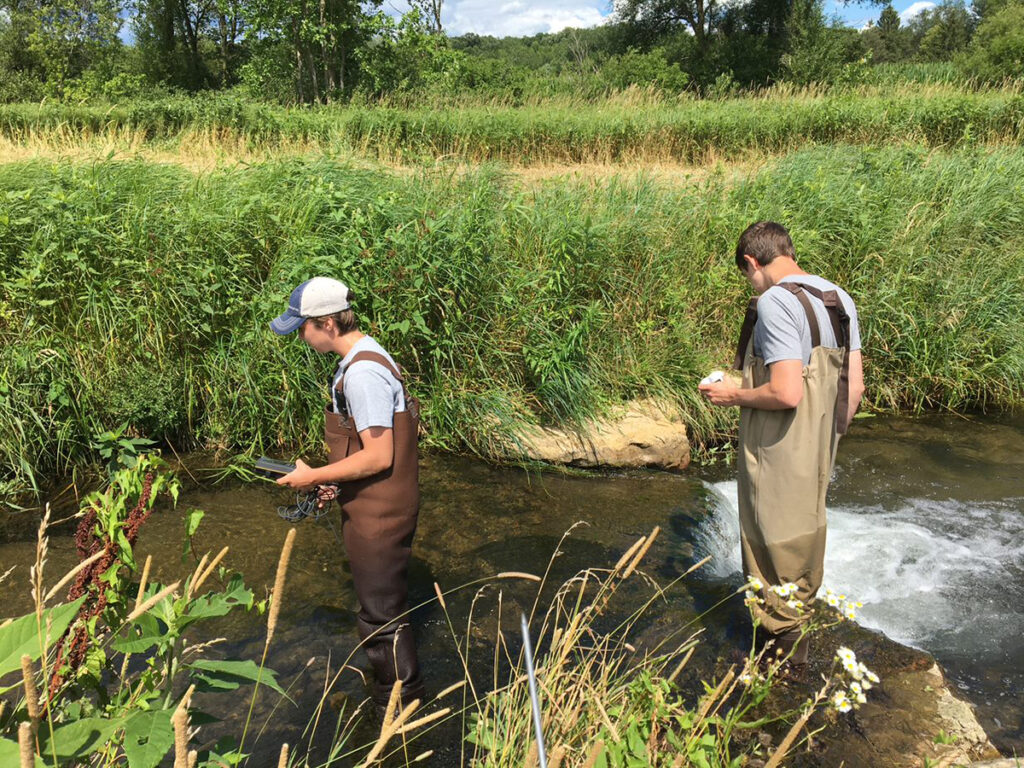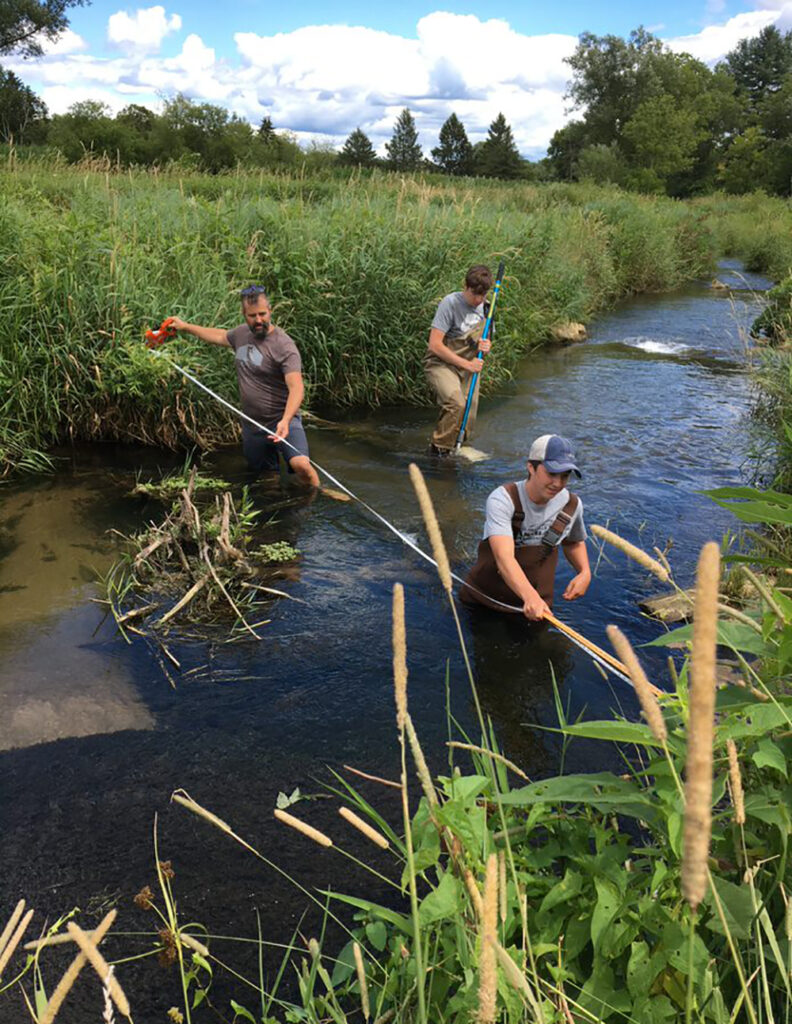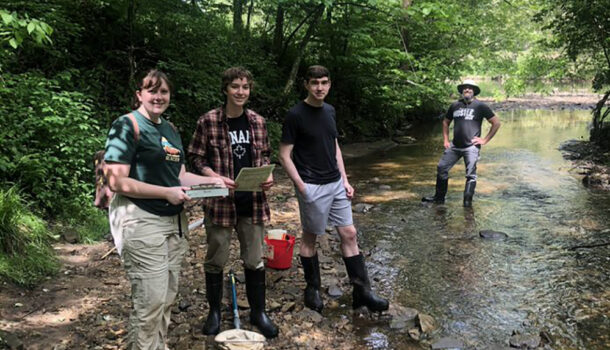Above Photo: From left, UW-Stout students Britney Serafina, Kal Breeden and Dylan Kostuch and Associate Professor Keith Gilland conduct research in a stream this summer as part of the Red Cedar Basin Monitoring Program. The program has received a second grant from the Freshwater Collaborative of Wisconsin.
Professors and students at University of Wisconsin-Stout have contributed for many years to efforts to reduce toxic, blue-green algae blooms and improve water quality in area lakes, rivers and streams.
“It will provide valuable opportunities for our students to get involved in research activities and build their skillsets and resumes…”
One of the latest projects, the Red Cedar Basin Monitoring Program, began this summer thanks to a nearly $72,000 grant from the Freshwater Collaborative of Wisconsin, a state-funded initiative.


The program will continue in 2023 in the Red Cedar River watershed thanks to a second grant, $89,768, announced Thursday, Sept. 15, by the Freshwater Collaborative. UW-Stout also will collaborate on two other new grants.
“I’m excited for this project to be renewed. It will provide valuable opportunities for our students to get involved in research activities and build their skillsets and resumes,” said Associate Professor Keith Gilland, who teaches in UW-Stout’s environmental science program.
Gilland is co-director of the project along with Assistant Professor Nicole Hayes, biology.
“It will also give them an opportunity to be involved with government officials and policy planners to work on real-world solutions to the water issues in our region. It helps strengthen Stout’s place in the community by making us an important player in the next iteration of the watershed 10-year plan,” he added.
This summer, three students tested water weekly in lakes Menomin and Tainter to monitor nutrient levels, algae blooms and general water quality. They also tested the Hay River and area streams. They are:
- Kal Breeden, of Lakeville, Minn., environmental science
- Dylan Kostuch, of Amherst, applied science
- Britney Serafina, of Baldwin, environmental science.
The data they collected will help assess the effectiveness of best management practices for reducing nutrient pollution and identify places in the watershed where more resources are needed, Gilland said.
Their work will continue through the fall, including analyzing and presenting the data and preparing for 2023.
CLICK HERE FOR MORE DETAILS AND THE FULL STORY



